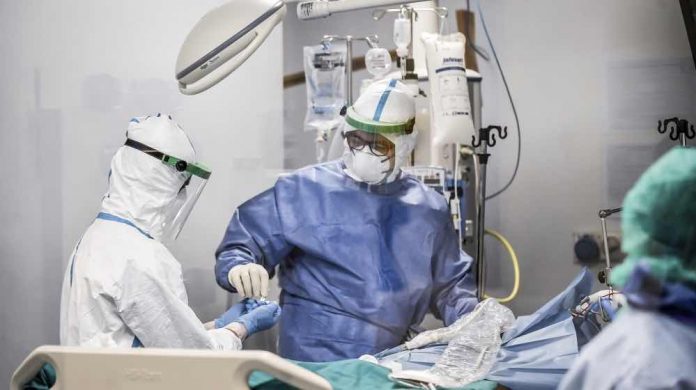
A scientist working on a coronavirus vaccine has warned that it might to be ready in time for winter when the flu season kicks in.
Sir John Bell, Oxford University’s regius professor of medicine, told MPs too many assumptions had already been made over the course of the Covid-19 pandemic and the public should not be overly dependent on the hope of scientific breakthroughs.
Greg Clark, chairman of the Science and Technology Select Committee, asked Sir John on Wednesday if the country should be preparing for the winter without a vaccine, or if one might be ready in time.
The professor replied that rather than rely on developments in medical research, the public should prepare for hard times to come once the colder weather and flu season hit.
“This whole epidemic has relied too heavily on assumptions that have turned out not to be true,” he said.
“So, my strong advice is be prepared for the worst.”
Ministers also heard how UK hospitals could be thrown into “pandemonium” if winter sees a second wave of the virus as well as a serious flu season.
Sir John told the committee: “I think one of the things that clinical staff in hospitals worry about is if we do have a significant flu season.
“Then we are going to have a bit of a clinical problem if we’ve also got Covid running alongside because you’ll get people with severe pneumonias arriving with fever and all the usual things, and it’ll be pandemonium in the A&E departments.
“So, what I’m rather hoping is that first of all we ideally expand the number of people getting flu vaccines so we get better coverage, and secondly we push quite hard to make sure people are compliant and participate in the flu vaccine programmes.
“The uptake is lamentably small in some countries and I think we’re not messing around anymore.
“This could be really serious if people don’t get their vaccines.”
Kate Bingham, chairwoman of the UK’s Vaccine Taskforce, told the committee that while she was optimistic that a vaccine would be developed, in the short-term it may just reduce the severity of the disease, rather than prevent people from contracting it.







